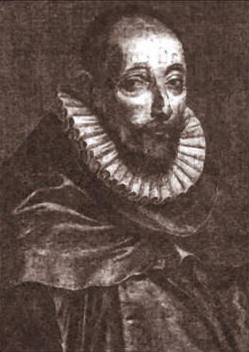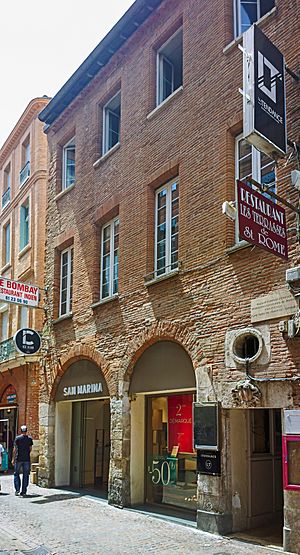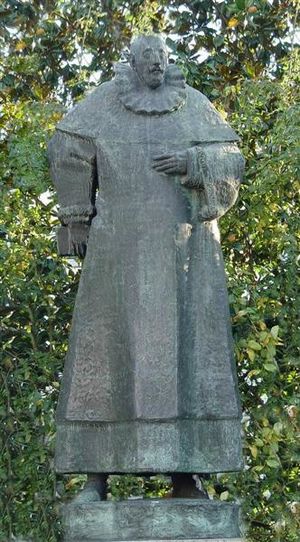Francisco Sanches facts for kids
Quick facts for kids
Francisco Sanches
|
|
|---|---|

Francisco Sanches
|
|
| Born | c. 1550 |
| Died | November 16, 1623 |
| Education | College of Guienne |
| Era | Renaissance philosophy |
| Region | Western philosophy |
| School | Renaissance skepticism |
| Institutions | University of Toulouse |
|
Notable ideas
|
"Nothing is known" |
|
Influences
|
|
|
Influenced
|
|
Francisco Sanches (born around 1550 – died November 16, 1623) was a smart thinker, a philosopher, and a physician. He came from a Sephardi Jewish family. He was likely born in Tui, Spain, or perhaps in Braga, Portugal, where he grew up.
Contents
Early Life and Studies
Francisco Sanches has a portrait at the University of Toulouse. It says "Francisco Sanchez Lusitanus," meaning he was from Portugal. But some research shows he was actually Spanish. He wrote, "I, Franciscus Sanctius, Spaniard, born in the city of Tui."
His father, Antonio Sanches, was also a doctor from Spain. His mother, Filipa de Sousa, was Portuguese. Because his family was Jewish, even though they had converted, they were called "New Christians."
Moving to France
Francisco studied in Braga, Portugal, until he was about 12. Then, his family moved to Bordeaux, France. They were trying to escape the Portuguese Inquisition. The Inquisition was a powerful group that watched over people who had converted from Judaism.
In Bordeaux, Francisco continued his studies at the College de Guyenne. Later, in 1569, he went to Rome to study medicine. He also studied medicine in Montpellier and Toulouse in France. After 1575, he became a professor of philosophy and medicine at the University of Toulouse.
His Main Ideas

Francisco Sanches wrote an important book called Quod nihil scitur. This means That Nothing Is Known. He wrote it in 1576, and it was published in 1581. In this book, he used old ideas about skepticism. Skepticism is the idea that we can't really know anything for sure.
He argued that true science, which tries to find the exact reasons for things, is impossible. He said that if you try to find the cause of something, you keep asking "why?" forever. This means you can never be completely sure about anything.
Doubting Knowledge
Sanches also didn't like the way people used syllogisms. A syllogism is a type of logical argument. He thought they didn't really help us learn new things. He believed that perfect knowledge would mean understanding every single thing directly. But he said this is too hard for humans.
He explained that everything in the world is connected and always changing. This makes it impossible to know everything. Also, our senses can trick us. We only know how things appear, not what they truly are. He used his experience as a doctor to show how our senses can be unreliable.

What We Can Know
Francisco Sanches had two main conclusions. First, he thought that true understanding could only come from faith. Second, he said that even if we can't know everything perfectly, we shouldn't stop trying to learn. We should try to gain some knowledge, even if it's limited.
This idea is called "constructive skepticism." It means that even if we doubt everything, we can still learn a lot through observation and experience. This way of thinking was important for later scientists. People like Marin Mersenne and Pierre Gassendi used his ideas to develop new ways of doing science.
Images for kids
See also
 In Spanish: Francisco Sánchez el Escéptico para niños
In Spanish: Francisco Sánchez el Escéptico para niños
 | James Van Der Zee |
 | Alma Thomas |
 | Ellis Wilson |
 | Margaret Taylor-Burroughs |


